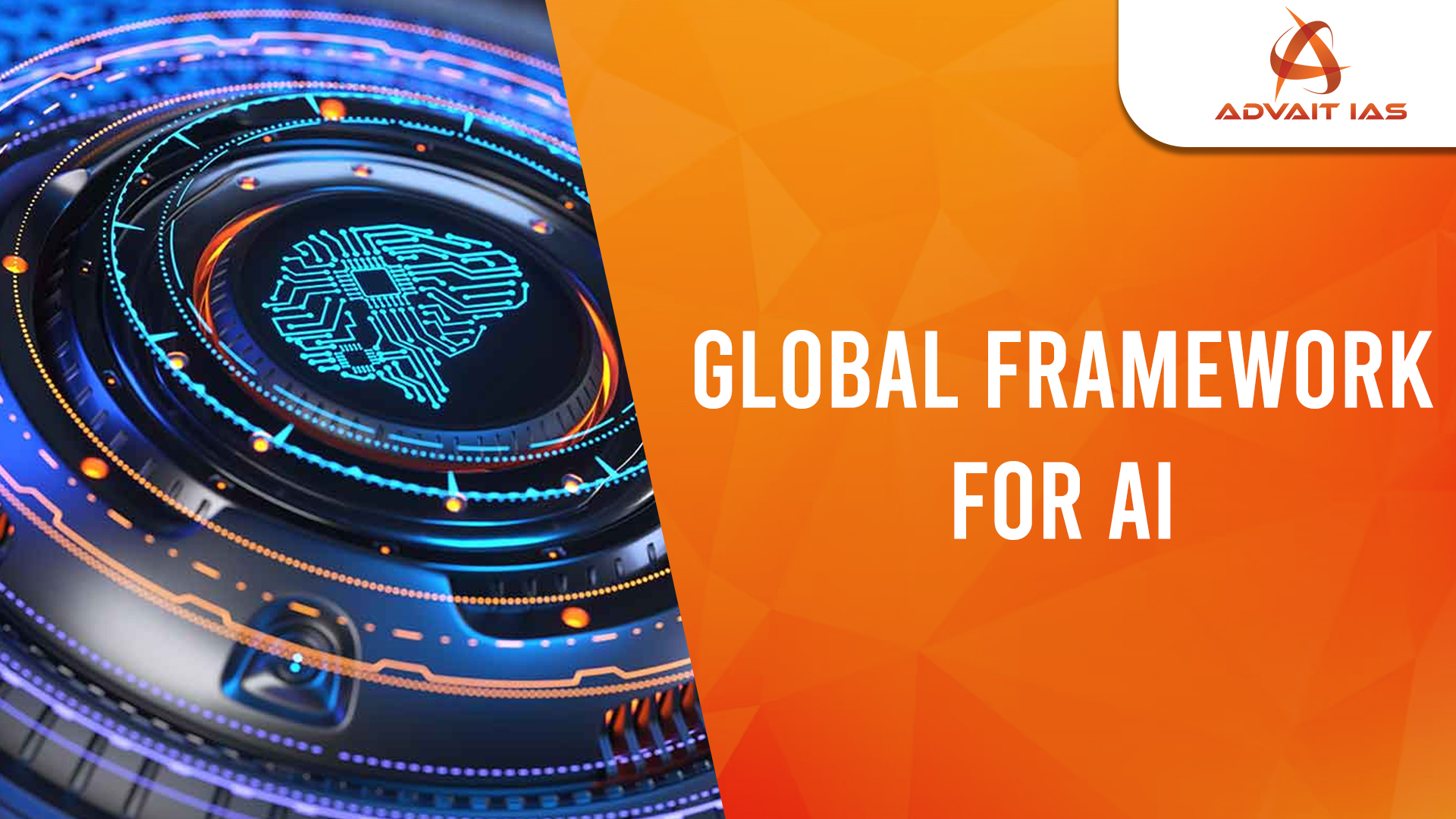Global Digital Framework Advocacy:
- Prime Minister Narendra Modi emphasized the need for a global framework that governs the use of digital technology and Artificial Intelligence (AI).
- He called for global institutions to create rule-based frameworks for digital technology, emphasizing privacy, security, and accountability.
Why Global AI Regulation is Essential?
- Preventing Misuse: Regulations limit harmful AI applications, safeguarding against issues like surveillance and manipulation.
- Protecting Privacy: A global framework ensures standardized data protection and respects individual rights.
- Building Trust and Accountability: Clear rules promote ethical practices, enhancing public trust in AI.
- Managing Economic Impact: Regulation helps mitigate AI’s effects on jobs and supports adaptation for small businesses.
- Ensuring Ethical Development: Standards reduce biases and align AI with global ethical values.
- Supporting Sustainability: Global regulation ensures AI contributes positively to Sustainable Development Goals (SDGs).
- Facilitating Cooperation: Common standards promote international collaboration and safe innovation.
Key Global Efforts in AI Regulation
- UN’s AI Resolution:
- Calls for responsible AI use to support global Sustainable Development Goals (SDGs).
- Highlights AI’s potential negative impact on jobs, especially in developing countries.
- Stresses AI’s effects on small businesses and urges international collaboration to manage AI responsibly.
- EU’s AI Act:
- Categorizes AI systems by risk: unacceptable, high, limited, and minimal.
- Bans certain AI uses, like mass surveillance and behavior manipulation, with limited exceptions for law enforcement.
- Focuses on compliance issues and addresses challenges posed by Generative AI like ChatGPT.
- China’s AI Regulations:
- Prioritizes risk management, content moderation, data protection, and algorithm security.
- Aims to foster AI growth while protecting national interests in social and economic areas.
- UK’s Flexible AI Framework:
- Uses a principles-based approach rather than strict rules, allowing for adaptable regulations.
- Involves consulting with regulatory bodies to gain insights and close regulatory gaps.
- Aims for a balanced, less centralized method to effectively manage AI technologies.
- India’s AI Mission:
- Allocates ₹10,300 crore to boost AI innovation through public-private partnerships and support startups.
- Invests in advanced technology deployment and aligns with SDGs to ensure responsible growth.
- Takes a phased approach to build an inclusive AI system that addresses India’s diverse needs.
A robust global AI regulatory framework is crucial to mitigate risks associated with AI, including privacy concerns, economic disruptions, and unethical practices. Efforts from international bodies, like the UN, EU, China, the UK, and India, demonstrate a collective recognition of AI’s potential and its challenges. By fostering cooperation and standardizing rules, the global community can harness AI’s power responsibly while ensuring it contributes positively to society and the economy.






